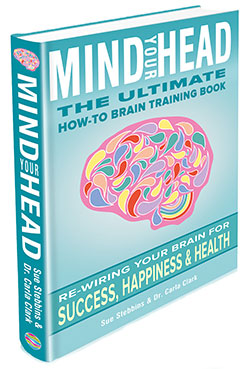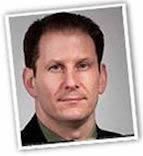Heidegger's Interpretation of Kant: Categories, Imagination, and Temporality
(MARTIN WEATHERSTON)
Reviewed by Robert Hanna
Page 2
Source: http://ndpr.nd.edu/review.cfm?id=1346
Nevertheless there are still a few isolated knotty cases in which, I think, neither Heidegger’s interpretation of Kant’s texts, nor Weatherston’s interpretation of Kant’s texts, nor Weatherston’s criticism of Heidegger’s interpretation of Kant’s texts, is correct. For example, Heidegger says that for Kant “formal intuition” (i.e., formale Anschauung, not to be confused with “form of intuition” or Form der Anschauung--see Critique of Pure ReasonB160-161 n.) should be understood as essentially imaginational and nonconceptual, which I think is incorrect; then Weatherston says that there is no sense in which sensibility is spontaneous, which I think is also incorrect; and then Weatherston criticizes Heidegger for failing to see that there is no sense in which sensibility is spontaneous, which I think is yet again incorrect. For Kant, formal intuition is the joint result of what in the B edition he calls (1) the “pure intellectual synthesis of the understanding” and (2) the “pure figurative synthesis of the imagination” or “synthesis speciosa,” so it is necessarily both conceptual and nonconceptual. Moreover the sensibility has its own “lower-level” or nondiscursive type of spontaneity, which thus complements the “higher-level” or discursive spontaneity of the understanding, to the extent that the forms of intuition are generated by what Kant in the A edition calls the “synopsis” of the manifold in sensible intuition, which I would identify with the “pure synthesis of apprehension” in the A edition, and also in turn identify with the pure figurative synthesis of the imagination or synthesis speciosa in the B edition.
Of course all of this heavy Kantian transcendental machinery is an attempt to answer the $64,000 question: how can the logical functions of the understanding (and in particular, categories, judgments, and empirical concepts) apply to the objects given in sensibility? Here I think that the correct answer is that sensibility is directly nonconceptually acquainted with those given objects--which are “appearances” or “undetermined objects of empirical intuition”--by means of empirical intuition in inner or outer sense, and that the special cognitive role of the understanding is then to “determine” those objects, that is, correctly characterize them by means of concepts and judgments. In other words, for Kant empirical cognition or the objective representation of the natural world is the joint product of “bottom up” lower-level nonconceptual processing by sensibility and “top down” higher-level conceptual processing by the understanding. Each faculty directly contributes its own distinctive sort of representational form and content to the outputs of the other faculty, for the overall purpose of cognizing a determinate object: so they operate interdependently. Empirical cognition is thus a global achievement of the several interdependent faculties of a single unified self-conscious rational animal in dynamic interaction with its surrounding world. The trick is to avoid the dual mistake of holding that sensibility is purely passive and that the understanding does all the cognitive work, although this is the interpretation that Weatherston favors (see, for example, pp. 17, 96-98, 104, 116-120, 160, and 174).
Also I wish that Weatherston had tried to get more deeply into the dialectical interplay between Kant’s views and Heidegger’s views. In his Conclusion he says tantalizingly that both Kant and Heidegger recognized the importance of the finitude of human cognition and that they traced the source of this finitude to human intuitional cognition (p. 176). I agree completely. But that is all he says. So his discussion raises at least two important questions: (I) Are Kant’s views and Heidegger’s views in fact fundamentally different from one another? and (II) How should we evaluate the truth of their views?
As to the first question, it seems to me that in fact there are at least four ways in which Kant’s views and Heidegger’s views are deeply similar. (1) Weatherston himself notes the obvious parallel between Kant’s empirical vs. transcendental distinction, and Heidegger’s ontic vs. ontological (or beings vs. Being) distinction (p.165). But there is also (2) Kant’s theory of nonconceptual (i.e., intuitional) content in inner sense and outer sense, feeling or affect, imagination, perception, judgment, desire, and volitional intention, which Heidegger develops at length in Being and Time under the rubric of “care”; (3) Kant’s thesis (implicit in the first Critique but explicit in the Critique of Practical Reason) of the primacy of practical reason over theoretical reason, which Heidegger treats via his doctrines of temporality, freedom, and authenticity; and also (4) Kant’s observation in the Jäsche Logic that the fundamental question of philosophy is “what is a human being?,” which Heidegger attempts to answer via the existential analytic of Dasein. Furthermore it is arguable that (1*) Kant’s transcendental vs. empirical distinction is just the distinction between humanly essential fundamental cognitive capacities (i.e., understanding and sensibility) and their actual application to the world; (2*) that Kant’s theory of nonconceptual or intuitional content is the key to understanding his theory of cognition in the first half of the first Critique; (3*) that the primacy of the practical is the key to the understanding Kant’s theory of reason in the second half of the first Critique and in the second Critique; and finally (4*) that anthropocentrism is the key to understanding Kant’s transcendental idealism in all three Critiques. Now all four of these ideas are basically shared by Heidegger. So in this light it seems to me accurate to say that the Heidegger of Being and Time has “existentialized,” “externalized,” “noncognitivized,” “pragmatized,” and more generally flattened out Kant’s transcendental idealism, but still has not really deviated in any deep way from the Kantian framework.
As to the second question, it seems to me that while there are good reasons to prefer some of Heidegger’s views over some of Kant’s, nevertheless there are even better reasons strongly to prefer Kant’s views to Heidegger’s, all things considered.
We Make it Easy to Succeed
Successwaves, Intl.
Brain Based Accelerated Success Audios
 |






